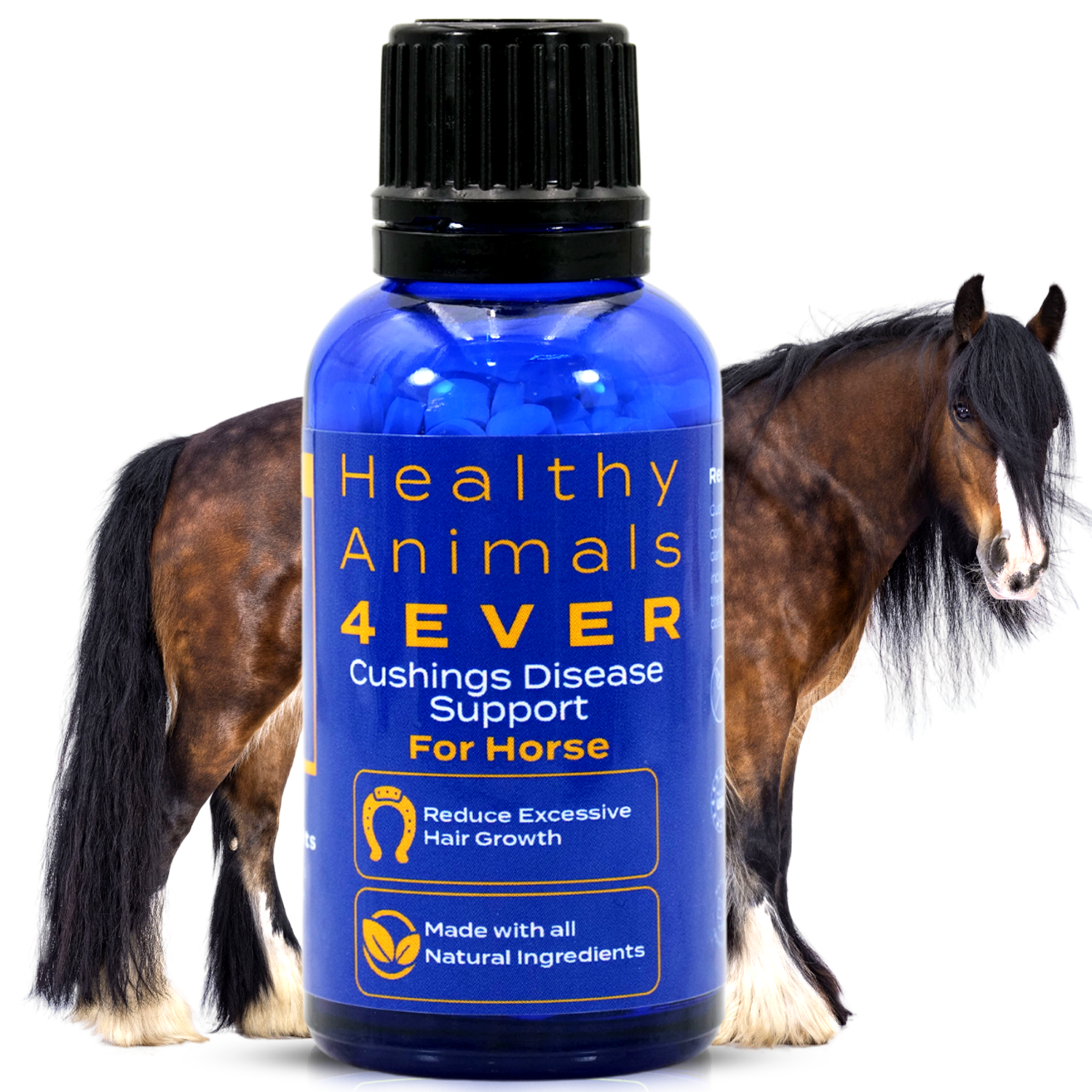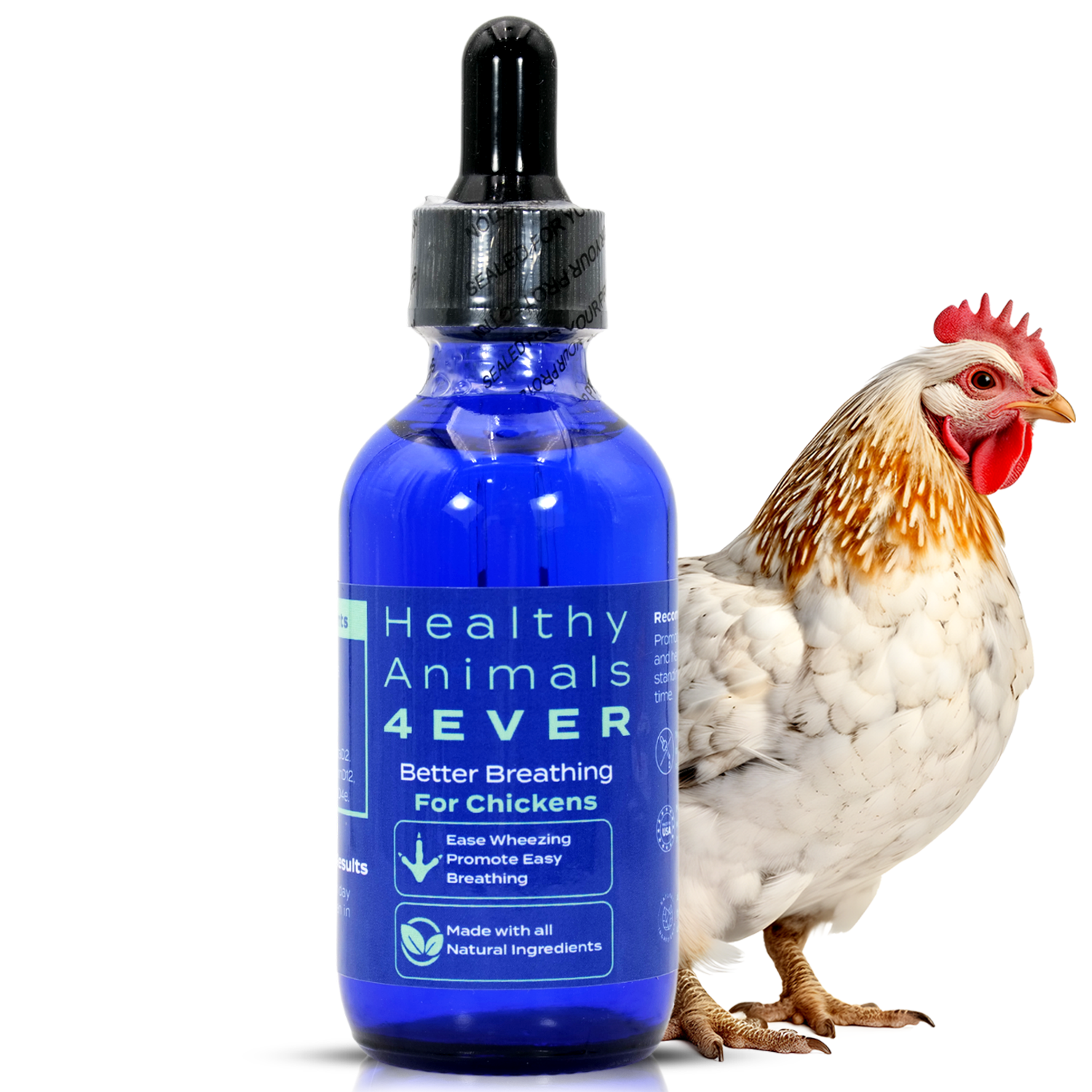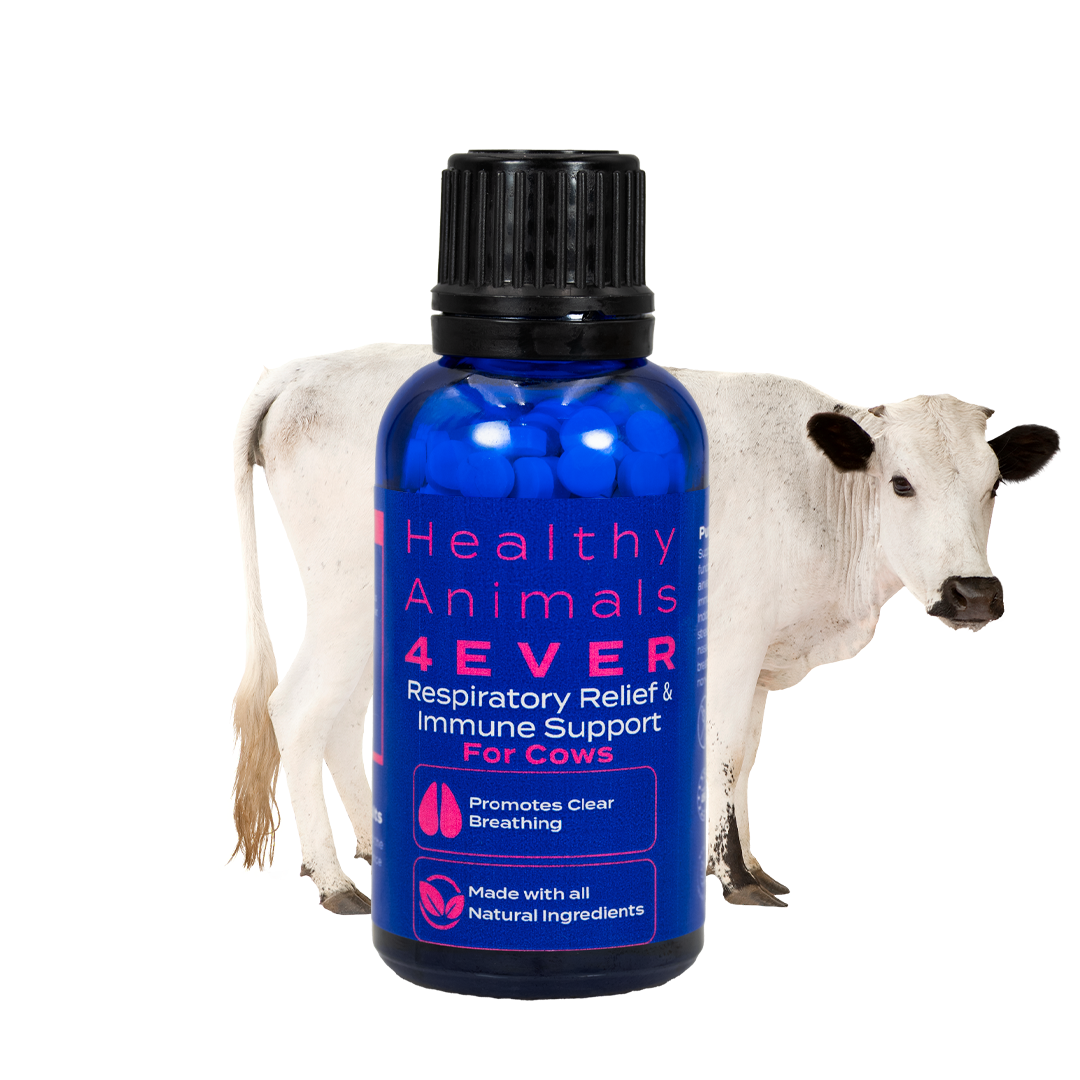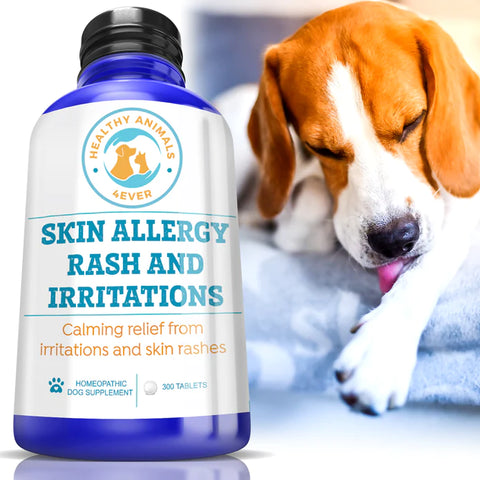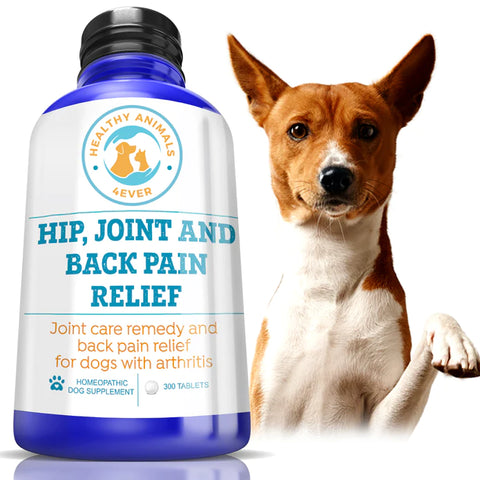Springtime Pet Safety: Expert Tips and Homeopathic Remedies for a Happy Season
With spring finally in full swing, it's time to shake off the winter blues and enjoy the fresh air with our pets by our side. But have you thought that springtime also brings its own set of challenges for your pet? From pesky bugs to tricky plants, we've got to stay on our toes to keep our animals safe and happy. That's where this guide comes in handy!
We're exploring how gentle homeopathic remedies can support our pets against everyday hazards. Let's learn how to make this spring season the best one yet for our pets!
Skin Allergy Rash and Irritations is a natural allergy remedy for all dogs. Helps heal irritated & infected skin. It may provide relief from insect bites. Provides a calming effect. All-natural formula. Easy to use.
Seasonal Hazards for Pets
Springtime brings with it a host of potential hazards for pets. Pet owners must be aware of these hazards to keep their animals safe.
Here are some common dangers pets may encounter during the spring season:
- Toxic Plants: Many plants that bloom in spring can be harmful or even deadly to pets if ingested. Examples include lilies, tulips, daffodils, and azaleas. Even seemingly harmless plants like certain ferns and ivies can cause gastrointestinal upset or more severe reactions in pets.
- Chemical Pesticides and Fertilizers: In spring, people start gardening and tending to their lawns, increasing the use of pesticides and fertilizers. These chemicals can be toxic to pets if they come into contact with them by directly ingesting them or walking on treated surfaces and licking their paws.
- Outdoor Pests: Warmer weather means increased outdoor pests like fleas, ticks, and mosquitoes. These pests cause discomfort and irritation to pets and transmit diseases such as Lyme disease and heartworm.
- Allergens: Just like humans, pets can suffer from seasonal allergies. Pollen from trees, grasses, and flowers can trigger allergic reactions in sensitive pets, leading to symptoms like itching, sneezing, and respiratory issues.
- Increased Outdoor Activity: With longer daylight hours and milder temperatures, pets spend more time outdoors during spring. While outdoor exercise benefits their health, it also exposes them to potential dangers such as traffic accidents, encounters with aggressive animals, and getting lost.
- Water Hazards: As ponds, lakes, and pools thaw from winter, they pose a drowning risk to pets, especially those not strong swimmers. Additionally, stagnant water can harbor bacteria and parasites that may cause infections or gastrointestinal issues if ingested.
Awareness of these seasonal hazards is the first step in ensuring the safety of our pets during the springtime. In the following sections, we'll explore how homeopathic remedies can help mitigate some risks and keep our pets healthy and happy.

Introduction to Homeopathy
Homeopathy is a natural and holistic approach to healthcare that has been used for centuries to treat humans and animals. Homeopathy is based on the principle of "like cures like," meaning that a substance that causes symptoms in a healthy individual can treat similar symptoms in a sick individual.
Here's a breakdown of key concepts related to homeopathy:
- Holistic Healing: Homeopathy views health as a balance between an individual's physical, mental, and emotional aspects. Rather than focusing solely on alleviating symptoms, homeopathic remedies aim to stimulate the body's innate healing abilities and restore overall well-being.
- Individualized Treatment: One of the fundamental principles of homeopathy is individualization. Instead of prescribing the same treatment for every pet with a particular condition, homeopathic remedies are chosen based on each animal's unique symptoms and characteristics.
- Dilution and Potentization: Homeopathic remedies are prepared through dilution and potentization, which involves repeatedly diluting a substance with water or alcohol and then vigorously shaking it (succussion). This process is believed to enhance the remedy's energetic properties while minimizing potential toxicity.
- Minimal Dose: Homeopathic remedies are administered in highly diluted doses, often to the point where no molecules of the original substance remain. Despite their extreme dilution, homeopathic remedies are believed to retain their therapeutic effects due to imprinting the remedy's energy on the solvent.
- Safety and Non-Toxicity: Homeopathic remedies are generally considered safe for pets, with minimal side effects or toxicity risk. This is because they are highly diluted and work on an energetic level. Thus, homeopathy is an attractive option for pet owners seeking gentle and non-invasive treatments for their furry companions.
- Complementary Medicine: Homeopathy can complement conventional veterinary care as part of a comprehensive treatment plan. Many pet owners find homeopathic remedies address underlying imbalances and support the body's natural healing processes.
Now that you understand homeopathy's principles and how it can benefit your pets, you are ready to explore homeopathic remedies as a safe and effective alternative for promoting wellness.
In the following section, we'll look into specific homeopathic remedies that can help protect pets from springtime hazards.
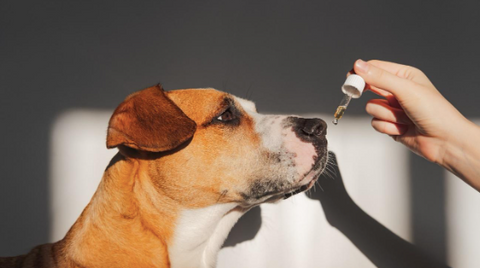
Homeopathic Remedies for Springtime Hazards
Let’s discover 6 homeopathic remedies tailored to address common hazards pets may encounter during springtime.
- Allium Cepa (Onion)
- Symptoms Addressed: Allium Cepa is effective for pets with watery eyes, runny nose, and sneezing, often indicative of allergies triggered by pollen or other environmental irritants.
- How it Works: This remedy gently stimulates the body's natural defenses, helping to alleviate allergic reactions and restore balance to the respiratory system.
Sneezing And Wheezing Due to Allergy provides natural support for wheezing, breathing difficulties, cough, and fatigue in cats. Helps decrease allergy intensity and prevent lung damage. All-natural formula. Easy to use.
- Apis Mellifica (Honeybee)
- Symptoms Addressed: Apis Mellifica is beneficial for pets experiencing swelling, redness, and stinging pain from insect bites or stings, such as those from bees or wasps.
- How it Works: Apis Mellifica reduces inflammation and soothes the affected area, relieving discomfort and helping promote healing after insect encounters.
- Nux Vomica (Poison Ivy)
- Symptoms Addressed: Nux Vomica is indicated for pets that have come into contact with poison ivy or similar irritants and exhibit symptoms like itching, inflammation, and restlessness.
- How it Works: This remedy calms irritation and itching, supporting the body's efforts to detoxify and recover from exposure to allergens like poison ivy.
- Rhus Toxicodendron (Joint Pain):
- Symptoms Addressed: Rhus Toxicodendron is indicated for pets experiencing stiffness, soreness, and joint discomfort, often exacerbated by prolonged outdoor activity or exposure to damp conditions.
- How it Works: Rhus Toxicodendron addresses inflammation and stiffness in the joints, promoting greater mobility and comfort. This allows pets to enjoy their outdoor adventures without discomfort.
Hip, Joint and Back Pain Relief is a natural hip, joint, and back pain remedy for all dogs. Helpful for dogs with arthritis. Useful as an anti-inflammatory. All-natural formula. Safe and easy to use.
- Hypericum Perforatum (Nerve Injury):
- Symptoms Addressed: Pets experiencing nerve pain, tingling sensations, or hypersensitivity following an injury or trauma may benefit from Hypericum Perforatum.
- How it Works: This remedy targets nerve-related discomfort, helping to soothe pain and restore normal sensation, particularly in areas affected by injury or nerve compression.
- Arnica Montana (Trauma and Bruising):
- Symptoms Addressed: Arnica Montana is commonly used to alleviate pain, swelling, and bruising associated with injuries or accidents, making it valuable for pets prone to outdoor mishaps.
- How it Works: Arnica Montana promotes circulation and reduces inflammation, aiding in the healing process and providing comfort and relief from the effects of trauma.
Remember to always follow the recommended dosage guidelines when using homeopathic remedies.

Additional Tips for Pet Safety
Ensuring the safety of our pets during the springtime involves more than just administering remedies.
Here are some practical tips to support your pet’s well-being:
- Supervise Outdoor Activities: When letting your pet out into the yard or taking them for walks, it's essential to supervise them closely. This helps prevent accidents such as ingesting toxic plants or encountering aggressive animals.
- Pet-Proof Your Garden: Take steps to pet-proof your garden by removing or securing hazardous plants, pesticides, and fertilizers. Consider creating a designated pet area where they can play safely without the risk of exposure to harmful substances.
- Provide Fresh Water: Ensure your pet can access clean, fresh water at all times, especially during warmer weather. Hydration is crucial for preventing heatstroke and maintaining overall health.
- Use Flea and Tick Prevention: Use veterinarian-recommended flea and tick preventatives to protect your pet from fleas, ticks, and mosquitoes. Check your pet regularly for signs of parasites, and consult your vet for the best course of action.
- Practice Good Grooming Habits: Regular grooming helps keep your pet's coat clean and free of allergens, preventing skin irritations and infections. Brushing your pet frequently also allows you to check for signs of ticks, fleas, or skin abnormalities.
- Keep Your Pet's ID Updated: Ensure your pet's identification tags and microchip information are up to date with your current contact information. This increases the chances of a safe return if your pet gets lost.
- Be Mindful of Seasonal Allergies: Be aware of seasonal allergies that may affect your pet, such as pollen. Keep windows closed on high pollen days and wipe your pet's paws and fur after outdoor activities to minimize exposure.
- Supervise Water Activities: If your pet enjoys swimming, supervise them closely around bodies of water to prevent accidents or drowning. Consider using a pet life jacket for added safety, especially for pets who are not strong swimmers.
- Create a Safe Indoor Environment: Provide your pet with a safe and comfortable indoor environment, especially during extreme weather conditions. Keep harmful substances like cleaning products and medications out of reach, and create a cozy retreat where your pet can rest undisturbed.
Implementing these tips and remaining vigilant can help ensure a safe and enjoyable springtime for your pets. Remember, prevention is key!

Emergency Preparedness
While preventing hazards is vital, it's equally crucial to be ready for emergencies that might catch us off guard.
Here's how you can prepare for unexpected situations and keep your pet safe:
- Recognizing Signs of Pet Emergencies: Knowing the signs of a pet emergency can help you act quickly and seek help when needed. Look out for symptoms such as:
- Difficulty breathing or excessive panting
- Bleeding that won't stop
- Loss of consciousness or collapse
- Severe vomiting or diarrhea
- Inability to urinate or defecate
- Sudden weakness or paralysis
- Seizures or convulsions
If you notice these signs or suspect your pet is distressed, seek veterinary care immediately.
- Assembling a Homeopathic Pet First Aid Kit: A well-stocked kit can be an emergency lifesaver. Here's what to include in your homeopathic pet first aid kit:
- Arnica Montana: for pain relief, bruising, and trauma.
- Calendula: for wound healing and skin infections.
- Ledum: for puncture wounds and insect bites.
- Hypericum: for nerve pain and injuries to sensitive areas.
- Aconite: for shock, fear, and sudden onset of symptoms.
- Rescue Remedy: a blend of flower essences to calm and comfort pets in stressful situations.
- Sterile gauze pads, bandages, and adhesive tape for wound care.
- Scissors and tweezers to cut bandages and remove debris.
- Antiseptic wipes or solutions for cleaning wounds.
- Thermometer (digital, rectal) to monitor your pet's temperature.
- Pet-friendly lubricant (such as petroleum jelly) for easing rectal temperature measurements.
- A list of emergency contacts, including your veterinarian's number and the nearest animal emergency clinic.
- Practicing Pet CPR and First Aid: Consider taking a pet CPR and first aid course to learn essential life-saving techniques. Topics typically covered include:
- CPR techniques for pets of different sizes.
- How to administer first aid for common injuries and illnesses.
- Recognizing signs of shock and how to respond.
By being prepared and knowing how to respond effectively, you can better protect your pet's health and well-being in times of crisis.
More Energy is a natural energy-booster remedy for all dogs. Provides multi-mineral support to promote healing, repair cells, and boost metabolic function. It helps older dogs cope with weakness, fatigue, and other health problems associated with aging. All-natural formula. Easy to use.
The Bottom Line
And there you have it! We've covered all the bases for keeping our pets safe and sound during the springtime. You're now ready to ensure your pets have a spring filled with joy and adventure. Remember, being prepared and vigilant are the keys to protecting our pets from harm.
So, soak up the sunshine and make some unforgettable memories with your pet. Happy spring!






